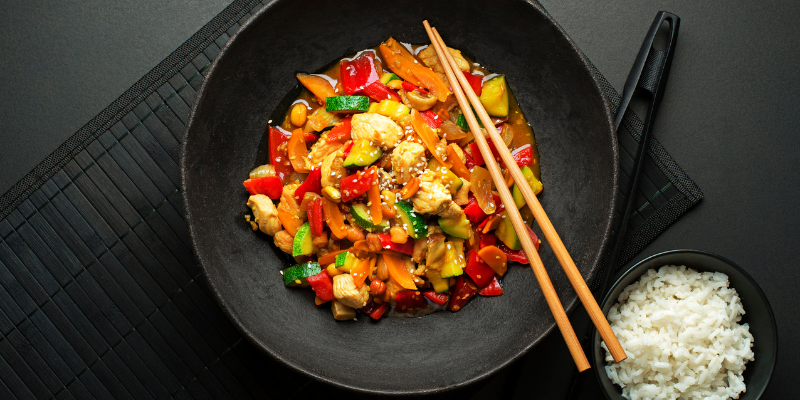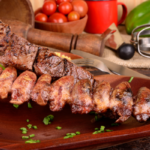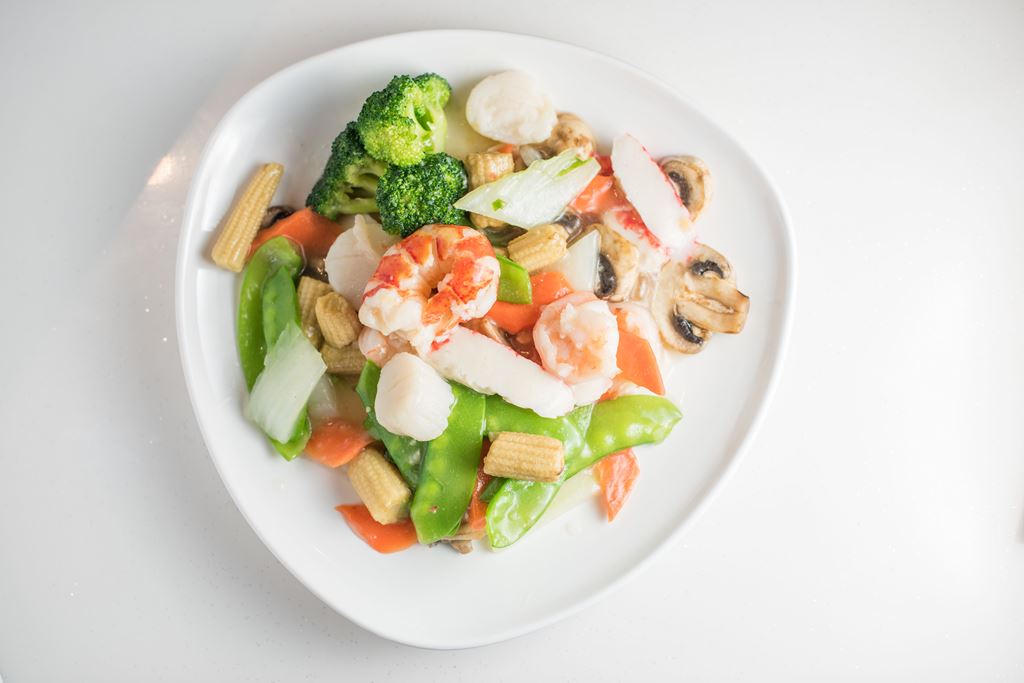When illness strikes, our bodies often crave comfort, warmth, and nourishment. One cuisine that excels in offering such solace is Chinese food. Rich in flavors, diverse in ingredients, and steeped in centuries of tradition, Chinese cuisine offers a range of dishes that can help alleviate symptoms and promote a speedy recovery.
In this article, we will explore the healing power of Chinese food when you’re under the weather, offering you a comprehensive guide on how to make the most of it. So, whether you’re battling the common cold, a bout of flu, or simply feeling a bit off, read on to discover how to utilize Chinese cuisine as your ally in sickness.
The Yin and Yang of Chinese Food
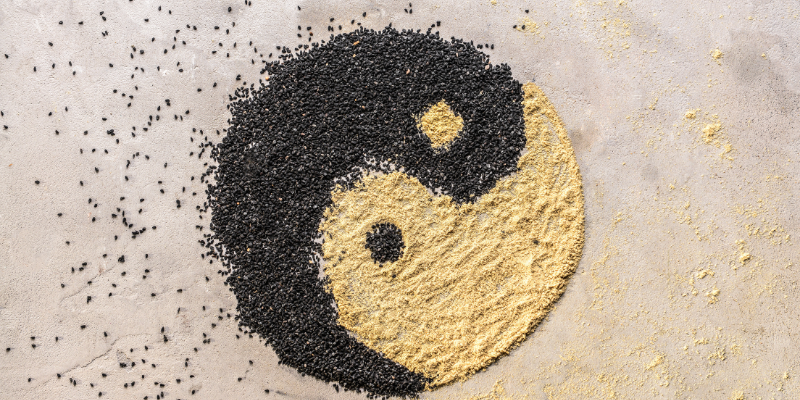
Chinese cuisine is not just about taste; it’s deeply rooted in the principles of traditional Chinese medicine (TCM), which emphasizes the balance between Yin and Yang energies in the body.
When you’re sick, your body often experiences an imbalance in these energies. Chinese food, with its wide array of ingredients, can help restore that balance.
Yin Foods:
- Foods that are cooling in nature.
- Recommended for conditions with symptoms like fever, inflammation, and excessive heat.
- Examples: cucumber, watermelon, tofu, and green tea.
Yang Foods:
- Foods that are warming in nature.
- Ideal for conditions characterized by cold symptoms, fatigue, and chills.
- Examples: ginger, garlic, cinnamon, and red meats.
Understanding these principles will help you select the right foods to address your specific illness-related symptoms.
You’ll Also Like: Phoenix And Dragon Food
Best Chinese Food When Sick
Chinese cuisine offers an arsenal of time-tested remedies for various ailments. Here are some classic Chinese dishes and ingredients to consider when you’re feeling under the weather:
Congee:
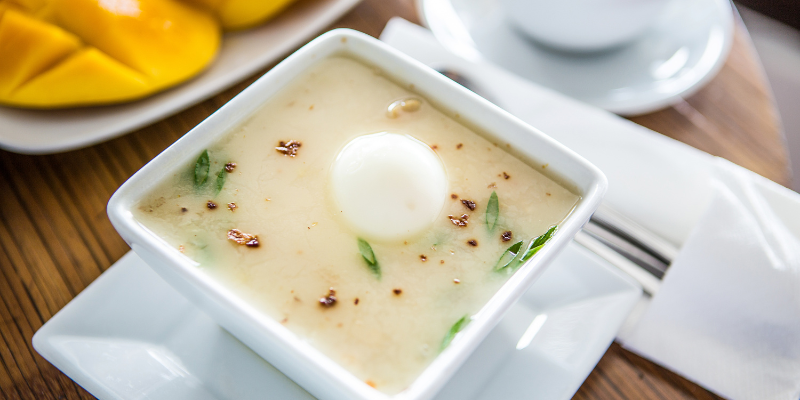
Congee, often referred to as “Chinese porridge,” is a staple when it comes to comfort food for the sick. Made from rice, it’s easily digestible and soothing. Customize it by adding ingredients like ginger, scallions, and chicken for added nourishment.
Hot and Sour Soup:
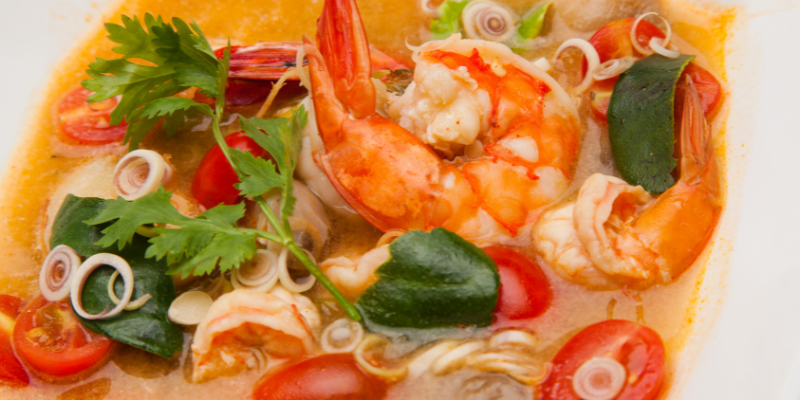
This soup is a popular choice for clearing congested sinuses due to its spicy and tangy flavors. It’s loaded with ingredients like tofu, mushrooms, and bamboo shoots that offer both warmth and nutrition.
Ginger Tea:
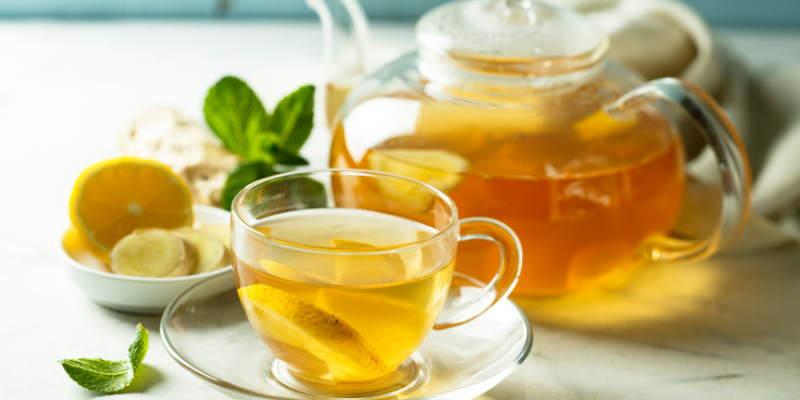
Ginger is a superstar ingredient in Chinese cuisine and traditional medicine. It has anti-inflammatory properties and can alleviate nausea and sore throat. A piping hot cup of ginger tea sweetened with honey is both comforting and therapeutic.
Herbal Teas:
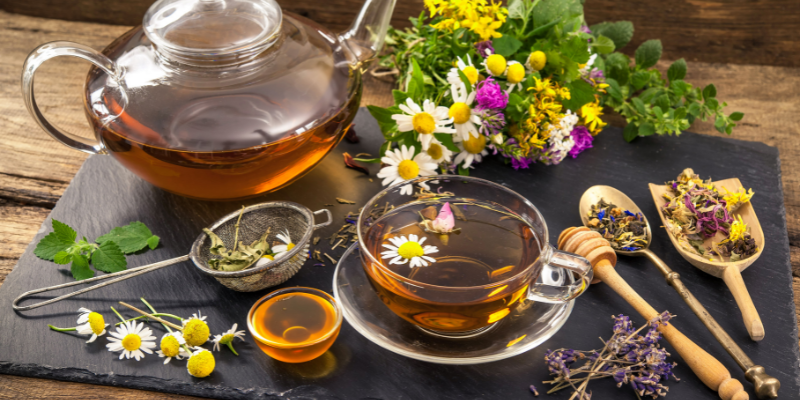
Chinese herbal teas are known for their healing properties. Peppermint tea can soothe an upset stomach, while chrysanthemum tea can help reduce fever and clear heat.
Foods for Specific Ailments
Now, let’s delve into how you can use Chinese food to address specific health issues:
Cold and Flu:
- Garlic: Garlic’s anti-viral properties can help fight off cold and flu viruses.
- Ginseng: Known for its immunity-boosting effects, ginseng can be brewed into a tea or added to soups.
- Chicken Soup: The classic remedy for colds, chicken soup’s warmth and nourishment can ease symptoms and speed up recovery.
Digestive Issues:
- Mint: Mint leaves or mint tea can soothe an upset stomach.
- Rice Congee: Easily digestible and gentle on the stomach, congee is a go-to for digestive discomfort.
Sore Throat:
- Honey and Lemon: A simple concoction of honey and lemon can provide relief for a sore throat.
- Luo Han Guo Tea: Made from a natural sweetener, this tea can help soothe throat irritation.
Fatigue and Weakness:
- Red Dates (Jujube): Rich in iron and vitamin C, red dates are known for boosting energy levels.
- Chinese Herbal Soups: Herbal soups like ginseng chicken soup or astragalus soup can help combat fatigue.
Balancing Flavors and Ingredients
Chinese cuisine is celebrated for its balance of flavors – sweet, salty, sour, bitter, and umami. When you’re sick, your taste buds might be compromised, making it challenging to enjoy food. Chinese dishes can be customized to cater to your altered taste perception. For example:
Sensitivity to Spices:
If you can’t handle spice due to a sore throat or congestion, opt for milder versions of your favorite dishes or reduce the spice level.
Blandness:
If you find food tasteless due to congestion, try incorporating more umami-rich ingredients like mushrooms, soy sauce, or oyster sauce for flavor.
Food Safety and Hygiene
When you’re sick, it’s crucial to pay extra attention to food safety and hygiene. Ensure that your Chinese takeout or homemade dishes are prepared and handled properly. Opt for well-cooked foods, and if you’re unsure about the cleanliness of a restaurant, consider cooking your own meals with fresh, locally sourced ingredients.
Herbal Remedies in Chinese Cuisine
Chinese cuisine often incorporates a wide range of herbs and spices with healing properties. Understanding these herbs can be invaluable when seeking relief from illness. Here are some commonly used herbal ingredients in Chinese cooking:
Astragalus (Huang Qi):
Known for its immune-boosting properties, astragalus is frequently used in soups and stews to enhance vitality and ward off illness.
Goji Berries (Gou Qi Zi):
These sweet, red berries are rich in antioxidants and are believed to improve immune function. They can be added to herbal teas, congee, or desserts.
Dried Tangerine Peel (Chen Pi):
Used to alleviate coughs and phlegm, dried tangerine peel is often included in soups and marinades, lending a unique citrus aroma.
Understanding how to incorporate these herbs into your Chinese dishes can provide an added layer of healing benefits to your meals.
Food Allergies and Sensitivities
It’s essential to be mindful of any food allergies or sensitivities you may have, even when you’re unwell. Chinese cuisine, with its diverse ingredients, can sometimes pose risks to those with allergies. Here’s how to navigate this issue:
Communicate Allergies Clearly:
When ordering Chinese food, communicate your allergies or sensitivities to the restaurant staff or your home chef explicitly. Many establishments are willing to accommodate dietary restrictions.
Check Ingredient Labels:
If you’re preparing Chinese dishes at home, carefully read ingredient labels, especially for packaged sauces and condiments, to ensure they don’t contain allergens.
Substitute Ingredients:
If you have allergies, consider substituting ingredients in recipes. For example, if you’re allergic to peanuts, opt for alternative nut or seed butters in dishes like kung pao chicken.
You’ll Also Like: The Health Benefits of Eating yat Chinese food
The Psychological Aspect of Chinese Comfort Food
Chinese comfort food isn’t just about physical nourishment; it also addresses the psychological aspect of feeling better when you’re sick. Here’s how Chinese food can offer mental comfort:
Familiarity and Tradition:
Chinese comfort dishes often evoke a sense of nostalgia and tradition, making you feel connected to your roots and family.
Warmth and Care:
The act of preparing and serving Chinese comfort food to a loved one can convey warmth and care, offering emotional support during illness.
Emotional Wellness:
Savoring your favorite Chinese dishes can uplift your mood, reduce stress, and make you feel more positive about your recovery.
Incorporating the psychological aspect of Chinese comfort food into your healing journey can contribute significantly to your overall well-being.
You’ll Also Like: The Health Benefits of Eating yat Chinese food
Our Take
Chinese food, with its rich history and culinary diversity, offers a treasure trove of remedies for when you’re sick. Whether it’s a comforting bowl of congee, the spicy warmth of hot and sour soup, or the healing power of ginger tea, Chinese cuisine provides a holistic approach to healing and nourishing your body.
By grasping the principles of Yin and Yang, customizing dishes to your symptoms, and prioritizing food safety, you can harness the therapeutic potential of Chinese food to ease your ailments and pave the way for a faster recovery. So, the next time you’re feeling under the weather, turn to Chinese food as your trusted ally in wellness.
Frequently Asked Questions
1. Is Chinese food a good choice when I’m sick?
Yes, Chinese food can be an excellent choice when you’re sick. Chinese cuisine offers a vastly diverse range of dishes and ingredients that can help alleviate symptoms and promote a faster recovery, thanks to its emphasis on balancing Yin and Yang energies.
2. What are some go-to Chinese dishes for cold and flu relief?
For cold and flu relief, consider dishes like hot and sour soup, ginger tea, and chicken congee. These dishes are known for their warming, soothing, and immune-boosting properties.
3. Are there any Chinese herbs that can help with common illnesses?
Yes, Chinese cuisine often incorporates healing herbs like astragalus, goji berries, and dried tangerine peel. These herbs are used to enhance vitality, boost the immune system, and alleviate specific symptoms.
4. How can I ensure the Chinese food I order or prepare is safe for consumption when I’m unwell?
To ensure food safety, communicate any allergies or sensitivities clearly when ordering or cooking Chinese food. Read ingredient labels carefully, and consider substituting ingredients if necessary. Opt for reputable restaurants known for their hygiene and quality.
5. Can the psychological aspect of Chinese comfort food really help with recovery?
Yes, the psychological aspect of Chinese comfort food plays a significant role in recovery. The familiarity, warmth, and emotional support provided by these dishes can positively impact your overall well-being, contributing to a quicker and more comfortable recovery process.

At Bridge House Tavern, we’re more than a team of food enthusiasts; we’re a culinary journey waiting to be savored. Our five-member crew is on a relentless quest to explore, create, and share the wonders of the gastronomic world.

